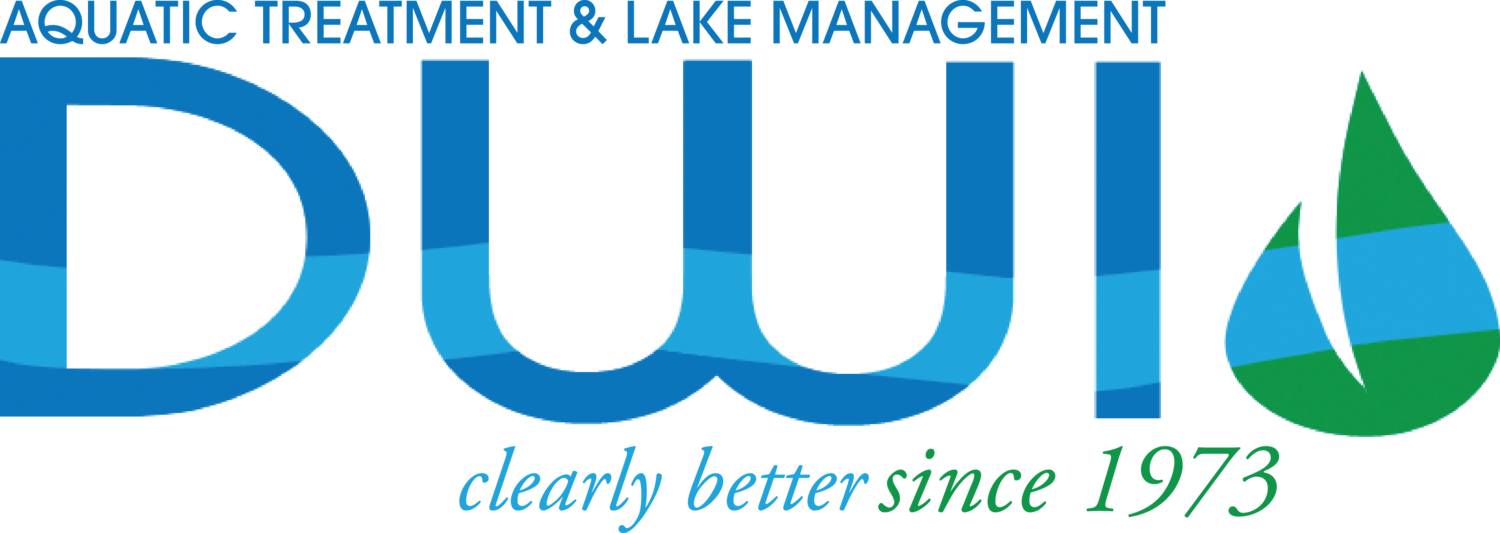By Patrick Simmsgeiger, CEO of DWI
The individuality of ponds and lakes makes their maintenance far more complicated than simple principles of cause and effect. Out of ten lakes, two or three may need to special maintenance, three may be very tough to manage, and five may need simple preventative measures. It’s the tough ones that motivate property and waterscape managers to seek a specialist.
As someone devoted to water management problems, I have many tools, but their use needs to be directed wisely. Property Owners, Property Managers or Golf Course Superintendents can treat smaller ponds like swimming pools only if they have money to burn. They can exclude natural solutions in favor of chemicals or equipment-based ones (like filters), or they can hire a professional who understands how to balance natural and artificial treatment methods.
We have all kinds of tools, some work as promised, but none are a solution in itself. The best approach is to start with the idea of restoring a natural balance by providing adequate circulation, managing nutrient levels, ensuring adequate aeration, establishing a proper balance of fish species, and adjusting suspended solids and organic content with equipment and registered chemicals.
The trick is not to create a new problem by overloading one side of the equation. Nature is complex. You have to stay close to every job to really appreciate what it takes to avoid an aquatic imbalance. That’s why aquatic management is more complicated than many other aspects of facility management.
When your lake or pond gets hit with an algae or aquatic weed problem, the answer won’t be a single fix-all. It will be a package of solutions that work together to resolve the problem. Bottom line: making one change and moving on won’t correct the problem.
You need to establish how important each water feature is to you to get serious about a budget that will ensure the water feature’s aesthetic value. Everyone involved needs to determine whether a water feature is, or is not, worth maintaining properly. That’s as simple as it gets.
If you do respect the value of water features, you will then appreciate the concept of natural balance. However, you probably won’t want to go into specifics of population percentages between forage fish and weed eating species. You probably won’t know about the type of fish that controls the snail that acts as host to swimmer’s itch. You may not appreciate the value of fish species that eat insect larvae. You won’t know the difference weed control in flowing water and reservoirs.
Your aquatic management professional will know the answers. There are guidelines that describe the numbers of specific types of fish per 1,000 square feet of lake surface. There are certain chemicals that need to be applied at very close tolerances based upon acre feet of water in each lake. The aquatic maintenance measures will not work at incorrect rates.
As an aquatic management specialist, it’s my job to know the answers. If you want to keep your lake under control, I have the knowledge and experience to do that. At the same time, I can give you some hints as to the acceptable slope for watershed; the trouble caused by over watering highly fertilized areas around lakes; and the positioning of trees near bodies of water. (The debris from their leaves is a major source of nutrients in lakes.)
When you look for assistance with lake management, first determine whether the individual is licensed by your state and has all the related applicator’s licenses. (In some states, you must be certified to apply lake dyes.)
Second, ask for proof of Worker’s Compensation coverage and liability insurance coverage, including performance bonds for large, complex jobs.
Finally, check references. Probe for job performance feedback. The time you invest in now save you work in the end.
Keep in mind that much more of the earth is covered in water than land, yet we assume land is the only thing that counts. Let me respectfully suggest there is a whole world out there that matters a great deal to us. We just need to give it the respect it is due.
That’s what a few of us do every day. You can have it all if you delegate lake management to a knowledgeable person. We aren’t cleaning pools, we are managing a delicate balance between natural aquatic organisms and the aesthetic appearance of highly visible bodies of water within landscapes.



